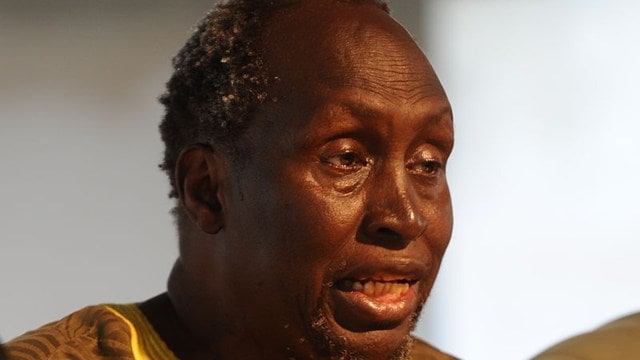Ngũgĩ wa Thiong’o is no more: 5 must-read works that cement his legacy as a ‘towering giant of African literature’
Ngũgĩ’s writing was a lifelong act of resistance, one that continues to inspire readers and writers across the globe. Here are five must-read works by the author.
 From his early novels in English to his later works in Gikuyu (the language spoken by the Bantu ethnic group in Kenya), Ngũgĩ’s writing was a lifelong act of resistance. (Wikimedia)
From his early novels in English to his later works in Gikuyu (the language spoken by the Bantu ethnic group in Kenya), Ngũgĩ’s writing was a lifelong act of resistance. (Wikimedia) The literary world mourns the loss of Ngũgĩ wa Thiong’o, the revolutionary Kenyan writer who redefined African literature. He passed away on May 28, 2025, at the age of 87, leaving behind a body of work that challenged colonialism, dictatorship, and the very language of storytelling itself.
From his early novels in English to his later works in Gikuyu (the language spoken by the Bantu ethnic group in Kenya), Ngũgĩ’s writing was a lifelong act of resistance—one that continues to inspire readers and writers across the globe. To honour his towering legacy, here are five must-read books that capture the brilliance of one of Africa’s greatest literary minds.
1. Weep Not, Child (1964)

Why read it? The first English-language novel by an East African, this poignant coming-of-age story follows Njoroge, a boy whose dreams of education are shattered by Kenya’s violent struggle for independence. It was his first novel, published in 1964 under the name James Ngugi. Weep Not, Child is set during the Mau Mau Uprising.
2. Petals of Blood (1977)

Why read it? It was Ngũgĩ’s last English novel before his linguistic shift to Gikuyu. It is a scathing indictment of postcolonial betrayal, it follows four interconnected characters navigating corruption and inequality in newly independent Kenya.
3. Decolonising the Mind (1986)
 Written during exile, it presents Ngũgĩ’s famous argument that African writers must reject European languages to achieve true liberation.
Written during exile, it presents Ngũgĩ’s famous argument that African writers must reject European languages to achieve true liberation.
Why read it? More than essays, this radical manifesto changed global conversations about literature and power. Written during exile, it presents Ngũgĩ’s famous argument that African writers must reject European languages to achieve true liberation. “This book is my farewell to English as a vehicle
for any of my writings. From now on it is Gikuyu and Kiswahili all the way,” he wrote. Analysing language as a tool of colonial control, Ngũgĩ makes a passionate case for African languages as vehicles of cultural sovereignty.
4. Wizard of the Crow (2006)
 Ngũgĩ wa Thiong’o’s magnum opus, this 700-page epic represents his most ambitious literary achievement.
Ngũgĩ wa Thiong’o’s magnum opus, this 700-page epic represents his most ambitious literary achievement.
Why read it? Widely considered Ngũgĩ’s magnum opus, this 700-page epic represents his most ambitious literary achievement. Written in Gikuyu and self-translated, it creates the fantastical dictatorship of Aburiria, where a corrupt ruler literally swells with greed while a mysterious “Wizard” inspires resistance. Blending magical realism, biting satire, and African oral traditions, the novel tackles globalisation, gender, and tyranny with unmatched scope. Its publication marked a high point in Ngũgĩ’s international acclaim, with many viewing it as his most Nobel-worthy work.
5. The Perfect Nine (2020)
 Ngũgĩ wa Thiong’o’s Booker-longlisted epic poem in Gikuyu reimagines the origin story of the Gikuyu people through feminist retelling.
Ngũgĩ wa Thiong’o’s Booker-longlisted epic poem in Gikuyu reimagines the origin story of the Gikuyu people through feminist retelling.
Why read it? This Booker-longlisted epic poem in Gikuyu reimagines the origin story of the Gikuyu people through feminist retelling. Its lyrical celebration of African mythology demonstrates the creative potential of indigenous languages on the world stage. As Ngũgĩ’s final major work, it serves as a powerful testament to his lifelong mission – proving African languages can carry universal stories with beauty and profundity. The nomination made history as the first for a work originally written in an indigenous African language.



- 01
- 02
- 03
- 04
- 05




























